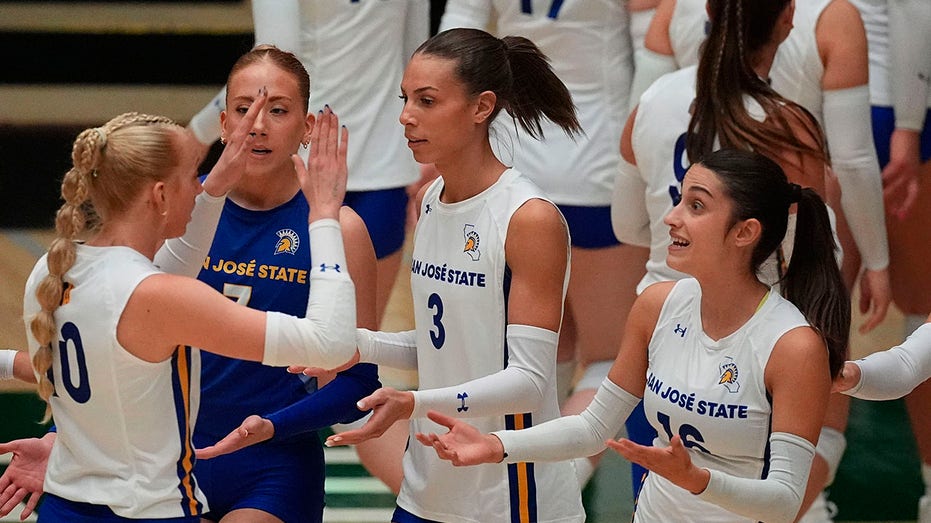NY Times hammered for article referring to biological women as ‘non-transgender women’
Prominent social media users went scorched earth against a recent New York Times article that referred to biological women as "non-transgender women."

Former female sports greats, media figures, and even a conservative lawmaker tore into a recent New York Times article for referring to women as "non-transgender women."
Tennis legend Martina Navratilova and other prominent people blasted the piece online for the characterization, stating the outlet should just be referring to biological women as women.
"NYT- you stink. We are women, NOT TRANSGENDER WOMEN. Just WOMEN will do in the future," Navratilova wrote on the social media platform on Friday.
The Times published an article Thursday which documented the inner turmoil of a women’s college volleyball team – the San Jose State University Spartans – attempting to field a transgender female player in upcoming tournament games.
The attempt to get the trans player to compete has caused division, not only in the league, but among team members, some of whom are suing their own team.
The outlet reported, "Earlier this month, a senior co-captain of the Spartans and the assistant coach filed a lawsuit to stop the transgender athlete from playing in this week’s Mountain West Conference tournament, claiming that she violates Title IX rights to gender equity at federally funded institutions."
The co-captain was joined by 10 female volleyball players, most of whom are on other teams that play against the Spartans. The Times described the situation as a "complicated mess," noting that "some of the Spartans no longer talk to one another at practice or outside of games" and adding that even the head coach – who supports the trans student – "has stopped talking to some players off the court, too."
The Times reporter Juliet Macur appeared to step into the debate as well, as further down in her piece, she employed the term "non-transgender women" as one way to distinguish biological women.
Describing some of the science that fuels that debate as to whether trans women can compete in women’s sport, Macur wrote, "On its website, the N.C.A.A. says trans volleyball players are eligible to play if their testosterone level is less than 10 nanomoles per liter — that’s at least four times more than what many experts say is the top of the range for non-transgender women, and in the typical range for adult men."
At other points in the piece, the reporter also referred to the biological female athletes as "athletes assigned female at birth."
CLICK HERE FOR MORE COVERAGE OF MEDIA AND CULTURE
Frustrated social media users trashed these controversial descriptions of women.
British Olympian and activist Sharron Davies posted, "Written in the NYT … women are now Non-transgender women! Just wow! How anyone can say this isn’t a men’s rights movement I’ll never know, whilst women lose their rights, their words, their safeguards, their sports, their sex discrimination laws… I will never understand."
Anti-trans activism account "WomenAreReal" addressed the outlet on X, stating, "Hey @nytimes Don’t call us ‘non-transgender women.’ Just stop it. Stop all the offensive terms for us."
The account listed other politically correct terms trans activists have used to referred to biological women, including, "birthing parent," "uterus haver," "menstruator," and "vaginal presenting." "We are WOMEN!" the account added.
Journalist Tiffany Wong posted, "LMAO, New York Times is calling normal, sane women ‘non-transgender women.’"
Conservative journalist Andy Ngo remarked, "In woke ideology, there are only transgender women and non-transgender women."
Even Rep. Nancy Mace, R-S.C., trashed the outlet, stating, "The New York Times, everybody, where women are defined as ‘non-transgender women.’ What bs. #HoldTheLine."
Fox News Digital reached out to The New York Times for comment, but did not immediately hear back.
What's Your Reaction?















